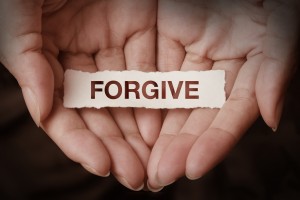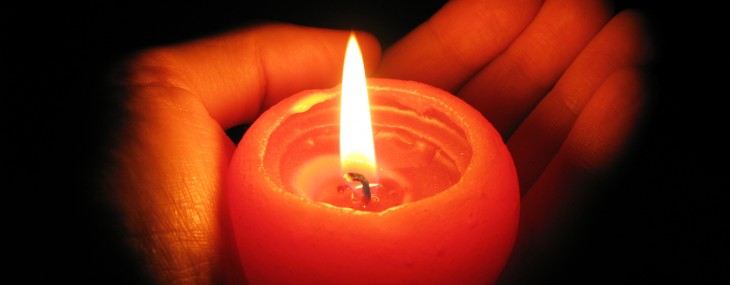What if someone rewrote the story of Little Red Riding Hood from the point-of-view of the grandmother? Or how about the wolf? Might be a very different tale.
God is sometimes known to orchestrate those kinds of shifts—putting us in someone else’s head—through a movie, a book, or even a conversation.
In 1998, two movies released within four months of each other, and both deeply impacted me.
 The first one, Hope Floats, is a romantic drama about an unassuming housewife named Birdee, whose life completely crumbles when her husband reveals his infidelity in a very public way. Humiliated, she returns to her mother’s home to figure out her life.
The first one, Hope Floats, is a romantic drama about an unassuming housewife named Birdee, whose life completely crumbles when her husband reveals his infidelity in a very public way. Humiliated, she returns to her mother’s home to figure out her life.
The second movie, One True Thing, is a story of a young career woman named Ellen, who goes back to her childhood home to care for her ailing mother. Ellen idealizes her father, a celebrated novelist and professor. However, she barely conceals her distain for her mother, minimizing her as a shallow ditzy homemaker. Over the course of Ellen’s stay, she reconsiders her views. Her admiration shifts to her mother—a longsuffering wife with a philandering egocentric husband. The reversal turns into a crisis for her, because her mother is dying from cancer.
Both Birdee and Ellen reel under the pain of broken dreams. Life turned out so differently than they thought. The truth is, you can’t be human very long without experiencing some kind of heartache. I felt their strong inner conflicts. My own losses surfaced, and I wept bitterly.
Several years later, both movies were on the same TV channel back-to-back one afternoon. Was it odd, or was it God?
I decided to watch them again. However, this time something remarkable happened…
I experienced the story through the eyes of the two mothers instead of their daughters. It wasn’t a conscious decision. And as you might guess, the two stories took on a different emphasis.
To my surprise, the mothers offered the same message to their daughters. I didn’t see the parallel back in 1998.
 Both mothers had experienced a lifetime of disappointment—far more than their daughters. Yet they appeared cheerful and even light-hearted at times. One played with her granddaughter and took her grieving daughter to a dance. The other mother joyfully celebrated Christmas, decorating her home and singing carols in the town square. With vigorous resolve, the mothers had made a choice to “live anyway.” Those two words would become a catch phrase for me. I needed to learn what they knew—how to live and love in the midst of disappointment.
Both mothers had experienced a lifetime of disappointment—far more than their daughters. Yet they appeared cheerful and even light-hearted at times. One played with her granddaughter and took her grieving daughter to a dance. The other mother joyfully celebrated Christmas, decorating her home and singing carols in the town square. With vigorous resolve, the mothers had made a choice to “live anyway.” Those two words would become a catch phrase for me. I needed to learn what they knew—how to live and love in the midst of disappointment.
Maybe this idea seems obvious to you, but it wasn’t to me. As a young girl, I wanted life to be prettier and nicer than it is. I came from a stable loving family and assumed the world-at-large would be the same. The complexities of adult life rushed in like an ambush.
 But that afternoon, two movie mothers invaded my inner turmoil. It’s as if they came into my living room to speak with me personally: “Yes honey, you can make a nice dinner for that surly teenager. You can give a backrub to that husband who overlooked your needs. You can know who you are in God’s eyes around people who are condemning and toxic. You can serve an ailing parent with sacrificial love. Yes, you can even forgive, because God has forgiven you.”
But that afternoon, two movie mothers invaded my inner turmoil. It’s as if they came into my living room to speak with me personally: “Yes honey, you can make a nice dinner for that surly teenager. You can give a backrub to that husband who overlooked your needs. You can know who you are in God’s eyes around people who are condemning and toxic. You can serve an ailing parent with sacrificial love. Yes, you can even forgive, because God has forgiven you.”
“Or (they might’ve added…) you can stick out a pouty lip, cross your arms, dig in your heels and live inside your wounds. In fact, you can do that the rest of your life darlin’, if you’d rather just be sad.”
To really experience hope that floats to the surface in the daily struggle…
To truly find one true thing in a culture of betrayal and disrespect…
To be our best selves in the worst circumstances…and live anyway—is a choice.
But it’s also an outgrowth of experiencing God’s love.
When I watched those movies for the second time, it wasn’t the storyline, the character development or the intriguing dialogue of mothers and their daughters that really got me. Rather, that God’s presence showed up. I experienced the intimacy of One who knew the exact juggernaut of my stuckness, and spoke right to the heart of it.







